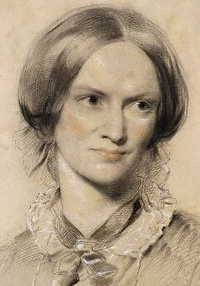
Charlotte Brontë was an English novelist and poet, the eldest of the three Brontë sisters who survived into adulthood and whose novels became classics of English literature. She is best known for her novel Jane Eyre, which she published under the gender neutral pen name Currer Bell. Jane Eyre went on to become a success in publication, and is widely held in high regard in the gothic fiction genre of literature.
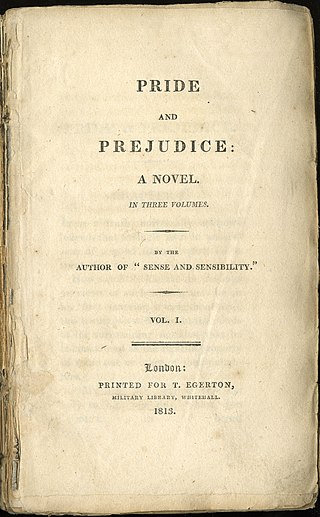
Pride and Prejudice is the second novel by English author Jane Austen, published in 1813. A novel of manners, it follows the character development of Elizabeth Bennet, the protagonist of the book, who learns about the repercussions of hasty judgments and comes to appreciate the difference between superficial goodness and actual goodness.

Sense and Sensibility is the first novel by the English author Jane Austen, published in 1811. It was published anonymously; By A Lady appears on the title page where the author's name might have been. It tells the story of the Dashwood sisters, Elinor and Marianne as they come of age. They have an older half-brother, John, and a younger sister, Margaret.

Jane Eyre is a novel by the English writer Charlotte Brontë. It was published under her pen name "Currer Bell" on 19 October 1847 by Smith, Elder & Co. of London. The first American edition was published the following year by Harper & Brothers of New York. Jane Eyre is a bildungsroman that follows the experiences of its eponymous heroine, including her growth to adulthood and her love for Mr Rochester, the brooding master of Thornfield Hall.

Emma is a novel written by English author Jane Austen. It is set in the fictional country village of Highbury and the surrounding estates of Hartfield, Randalls and Donwell Abbey, and involves the relationships among people from a small number of families. The novel was first published in December 1815, although the title page is dated 1816. As in her other novels, Austen explores the concerns and difficulties of genteel women living in Georgian–Regency England. Emma is a comedy of manners.

Middlemarch, A Study of Provincial Life is a novel by English author George Eliot, the pen name of Mary Ann Evans. It appeared in eight installments (volumes) in 1871 and 1872. Set in Middlemarch, a fictional English Midlands town, in 1829 to 1832, it follows distinct, intersecting stories with many characters. Issues include the status of women, the nature of marriage, idealism, self-interest, religion, hypocrisy, political reform, and education. Despite comic elements, Middlemarch uses realism to encompass historical events: the 1832 Reform Act, early railways, and the accession of King William IV. It looks at medicine of the time and reactionary views in a settled community facing unwelcome change. Eliot began writing the two pieces that formed the novel in 1869–1870 and completed it in 1871. Initial reviews were mixed, but it is now seen widely as her best work and one of the great English novels.
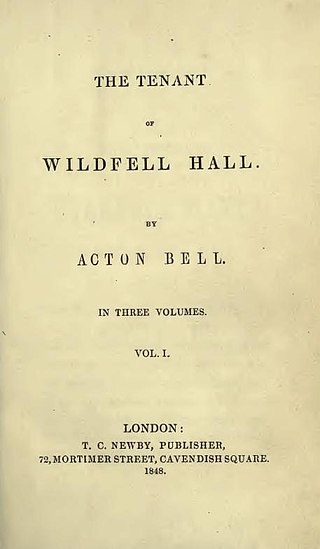
The Tenant of Wildfell Hall is the second and final novel written by English author Anne Brontë. It was first published in 1848 under the pseudonym Acton Bell. Probably the most shocking of the Brontës' novels, it had an instant and phenomenal success, but after Anne's death her sister Charlotte prevented its re-publication in England until 1854.

Persuasion is the last novel completed by the English author Jane Austen. It was published on 20 December 1817, along with Northanger Abbey, six months after her death, although the title page is dated 1818.

Shirley, A Tale is a social novel by the English novelist Charlotte Brontë, first published in 1849. It was Brontë's second published novel after Jane Eyre. The novel is set in Yorkshire in 1811–12, during the industrial depression resulting from the Napoleonic Wars and the War of 1812. The novel is set against the backdrop of the Luddite uprisings in the Yorkshire textile industry.

The Golden Bowl is a 1904 novel by Henry James. Set in England, this complex, intense study of marriage and adultery completes what some critics have called the "major phase" of James's career. The Golden Bowl explores the tangle of interrelationships between a father and daughter and their respective spouses. The novel focuses deeply and almost exclusively on the consciousness of the central characters, with sometimes obsessive detail but also with powerful insight.

Clarissa; or, The History of a Young Lady: Comprehending the Most Important Concerns of Private Life. And Particularly Shewing, the Distresses that May Attend the Misconduct Both of Parents and Children, In Relation to Marriage is an epistolary novel by English writer Samuel Richardson, published in 1748. It tells the tragic story of a young woman, Clarissa Harlowe, whose quest for virtue is continually thwarted by her family. The Harlowes are a recently wealthy family whose preoccupation with increasing their standing in society leads to obsessive control of their daughter, Clarissa. It is considered one of the longest novels in the English language. It is generally regarded as Richardson's masterpiece.

Piccadilly Jim is a novel by P. G. Wodehouse, first published in the United States on 24 February 1917 by Dodd, Mead and Company, New York, and in the United Kingdom in May 1918 by Herbert Jenkins, London. The story had previously appeared in the US in the Saturday Evening Post between 16 September and 11 November 1916.
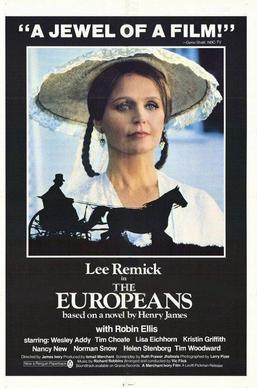
The Europeans is a 1979 British Merchant Ivory film, directed by James Ivory, produced by Ismail Merchant, and with a screenplay by Ruth Prawer Jhabvala, based on Henry James's novel The Europeans (1878). It stars Lee Remick, Robin Ellis, Tim Woodward and Lisa Eichhorn. It was the first of Merchant Ivory's triptych of Henry James adaptations. It was followed by The Bostonians in 1984 and The Golden Bowl in 2001.
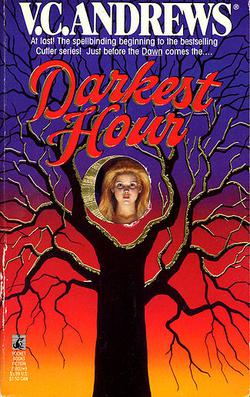
Darkest Hour is the fifth and final novel in a series of books about the Cutler family attributed to V. C. Andrews and published in 1993. It is allegedly based on the original ideas of Andrews but was written by ghostwriter Andrew Neiderman. Andrews is the credited author.

Anne Elliot is the protagonist of Jane Austen's sixth and last completed novel, Persuasion (1817).
Camilla, subtitled A Picture of Youth, is a novel by Frances Burney, first published in 1796. Camilla deals with the matrimonial concerns of a group of young people: Camilla Tyrold and her sisters, the sweet tempered Lavinia and the smallpox scarred Eugenia, and their cousin, the beautiful Indiana Lynmere—and in particular, with the love affair between Camilla herself and her eligible suitor, Edgar Mandlebert. They have many hardships, however, caused by misunderstandings and mistakes, in the path of true love.

Sturm der Liebe is a German television soap opera created by Bea Schmidt for Das Erste. It premiered on 26 September 2005. It airs 50-minute episodes on weekdays at 15:10.

Captain Frederick Wentworth is a fictional character in the 1817 novel Persuasion written by Jane Austen. He is the prototype of the new gentleman in the 19th century: a self-made man who makes his fortune by hard work rather than inheritance.

The Romance of a Shop is an 1888 novel by Amy Levy. The novel centers on the Lorimer sisters, who decide to open their own photography business after the death of their father leaves them in poverty. The novel examines the opportunities and difficulties of urban life for the "New Woman" in the late nineteenth century, maintaining their right to independent opinion and the questioning of social norms.

















